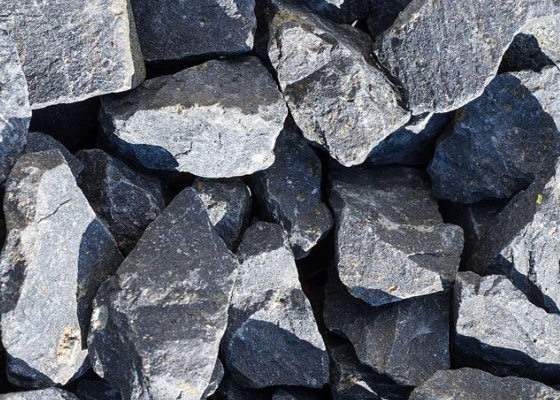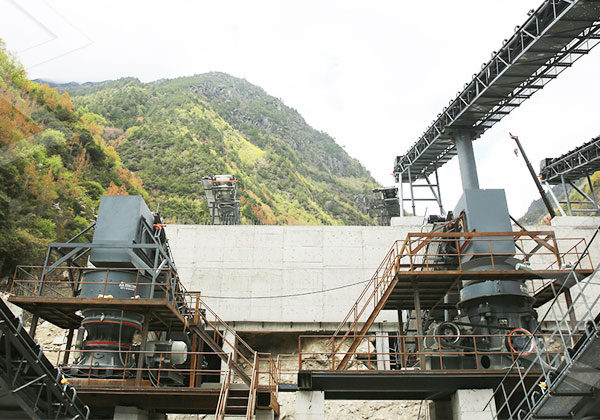A basalt crushing plant is a specialized plant used to crush and process basalt stones into various sizes and shapes for construction and other industrial uses. Basalt is a dense, hard rock that is commonly used in construction, especially for road and railway ballast, and as a raw material for producing high-quality concrete.

Components of a Basalt Crushing Plant
A typical basalt crushing plant includes several key components:
- Primary Crusher: The primary crusher, often a jaw crusher, is the initial step in the basalt crushing process. It reduces the large basalt stones to smaller sizes suitable for further processing.
- Secondary Crusher: After primary crushing, the material is transferred to the secondary crusher, usually an impact crusher or cone crusher. This crusher further reduces the size of the basalt stones, creating finer materials.
- Vibrating Feeder: This component is responsible for feeding the basalt stones evenly and continuously to the crushers.
- Vibrating Screen: The vibrating screen separates the crushed basalt into different size fractions. The desired size fractions are then collected for use, while the larger pieces are sent back to the crushers for further processing.
- Conveyor Belts: Conveyor belts transport the crushed basalt between different stages of the crushing process.
- Control System: Modern basalt crushing plants are equipped with advanced control systems that monitor and adjust the crushing process to ensure optimal performance and efficiency.

Features and Benefits
Durability and Strength: Basalt is known for its high compressive strength and durability. A basalt crushing plant is designed to handle the tough nature of basalt, ensuring long-lasting performance and minimal maintenance.
Efficiency: Advanced technology in modern basalt crushing plants ensures high efficiency in processing basalt, reducing energy consumption and operational costs.
Versatility: Basalt crushing plants can be customized to meet specific requirements. They can produce a range of products, from fine aggregates for concrete production to coarse aggregates for road construction.
Considerations for Purchasing a Basalt Crushing Plant
Capacity: Determine the required capacity of the plant based on your production needs. Basalt crushing plants come in various capacities, from small-scale plants suitable for individual projects to large-scale plants for commercial production.
Quality of Equipment: Ensure that the crushers, screens, and other components are of high quality and designed specifically for basalt processing. This ensures efficient operation and longevity of the equipment.
Supplier Reputation: Choose a reputable supplier with experience in manufacturing and supplying basalt crushing plants. Look for suppliers with positive customer reviews and a history of successful installations.
After-Sales Support: Reliable after-sales support is crucial for maintaining and troubleshooting the plant. Ensure that the supplier offers comprehensive support, including spare parts availability and technical assistance.
Cost: While cost is an important factor, it should not be the sole determinant. Consider the long-term benefits and efficiency of the plant, which can lead to significant cost savings over time.
A basalt crushing plant is a valuable investment for businesses involved in construction and infrastructure development. By choosing the right plant with the appropriate capacity and quality, companies can ensure efficient processing of basalt, leading to high-quality end products and significant operational savings. Prioritizing durability, efficiency, and environmental considerations will result in a plant that meets production needs while minimizing environmental impact.

